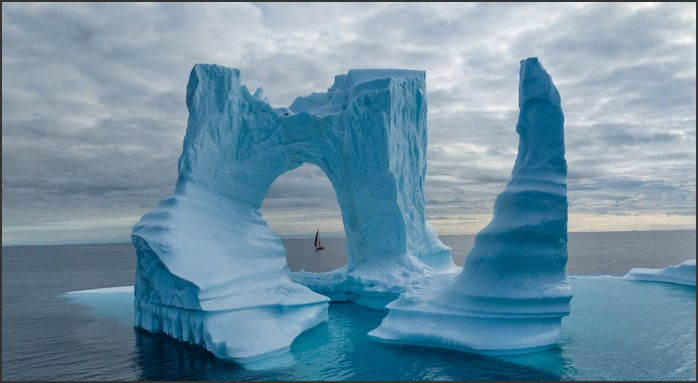Antarctic Pronounce: Mastering the Pronunciation of Frozen Wonders

Source : https://i.natgeofe.com
Welcome to Antarctic pronounce: Mastering the Pronunciation of Frozen Wonders! This course is designed to help you learn the correct pronunciation of the many wonders of the Antarctic region. From the names of glaciers and mountains to the names of animals and plants, you will learn how to correctly pronounce the words associated with this frozen continent. With this course, you will be able to confidently communicate with others about the Antarctic region and its many wonders.
Exploring the Unique Pronunciation of Antarctic Place Names: A Guide to Mastering the Sounds of the Frozen Continent
The Antarctic continent is home to some of the most unique and fascinating place names in the world. From the majestic mountains of the Transantarctic Range to the icy waters of the Ross Sea, the names of these places evoke a sense of awe and mystery. But what makes these place names so special is not just their exotic sound, but also their unique pronunciation.
In this guide, we will explore the unique pronunciation of Antarctic place names and provide tips on how to master the sounds of the frozen continent. We will look at the various dialects of English used in the Antarctic region, the phonetic spelling of Antarctic place names, and the importance of proper pronunciation. By the end of this guide, you will have a better understanding of the unique sounds of the Antarctic and be able to pronounce its place names with confidence.
The Antarctic region is home to a variety of dialects of English, including British, American, and Australian English. Each of these dialects has its own unique pronunciation of Antarctic place names. For example, the British pronunciation of the Antarctic Peninsula is “pen-in-sul-uh”, while the American pronunciation is “pen-in-sul-uh”. It is important to note that the pronunciation of Antarctic place names can vary depending on the dialect of English being used.
In addition to the various dialects of English, Antarctic place names are also written in phonetic spelling. This means that each letter is pronounced separately, rather than as a single word. For example, the phonetic spelling of the Antarctic Peninsula is “pen-in-sul-uh”. By learning the phonetic spelling of Antarctic place names, you will be able to pronounce them correctly regardless of the dialect of English being used.
Finally, it is important to remember that proper pronunciation of Antarctic place names is essential for effective communication. Whether you are speaking to a fellow explorer or a local resident, proper pronunciation will ensure that your message is understood. By mastering the unique sounds of the Antarctic, you will be able to communicate more effectively and make your experience in the frozen continent even more enjoyable.
By following the tips outlined in this guide, you will be able to master the unique pronunciation of Antarctic place names and communicate more effectively in the frozen continent. With a better understanding of the various dialects of English used in the Antarctic region and the phonetic spelling of Antarctic place names, you will be able to pronounce them with confidence and make your experience in the Antarctic even more enjoyable.
Unveiling the Mysteries of Antarctic Pronunciation: A Comprehensive Guide to the Unique Sounds of the Antarctic Region
The Antarctic region is home to a unique and fascinating array of languages and dialects, each with its own distinct pronunciation. For those unfamiliar with the region, understanding the nuances of Antarctic pronunciation can be a daunting task. To help demystify the process, this guide provides a comprehensive overview of the most common sounds found in the Antarctic region.
The Antarctic region is home to a variety of languages, including English, Spanish, French, and German. Each language has its own distinct pronunciation, and the Antarctic region is no exception. The most common sounds found in the Antarctic region are the “sh” sound, the “ch” sound, and the “th” sound.
The “sh” sound is pronounced like the English “sh” sound, but with a slightly softer tone. It is often used in words such as “shark” and “ship”. The “ch” sound is similar to the English “ch” sound, but with a slightly more nasal quality. It is often used in words such as “chill” and “chocolate”. The “th” sound is pronounced like the English “th” sound, but with a slightly more guttural quality. It is often used in words such as “thaw” and “thick”.
In addition to these three common sounds, the Antarctic region also has a variety of other unique sounds. For example, the “ng” sound is pronounced like the English “ng” sound, but with a slightly more nasal quality. It is often used in words such as “long” and “strong”. The “r” sound is pronounced like the English “r” sound, but with a slightly more guttural quality. It is often used in words such as “rock” and “river”.
Finally, the Antarctic region also has a variety of unique vowel sounds. The “a” sound is pronounced like the English “a” sound, but with a slightly more nasal quality. It is often used in words such as “antarctic” and “arctic”. The “e” sound is pronounced like the English “e” sound, but with a slightly more guttural quality. It is often used in words such as “explore” and “expedition”.
By understanding the nuances of Antarctic pronunciation, you can better appreciate the unique sounds of the region. Whether you are a native speaker or a visitor to the region, this guide will help you to better understand the unique sounds of the Antarctic region.
Conclusion
The Antarctic is a vast and mysterious continent, and its pronunciation can be a challenge for many. However, with a little practice and dedication, anyone can master the pronunciation of its frozen wonders. By understanding the rules of pronunciation and the unique sounds of the Antarctic, you can confidently pronounce the names of its glaciers, mountains, and other features. With a little effort, you can be an expert in Antarctic pronunciation in no time.